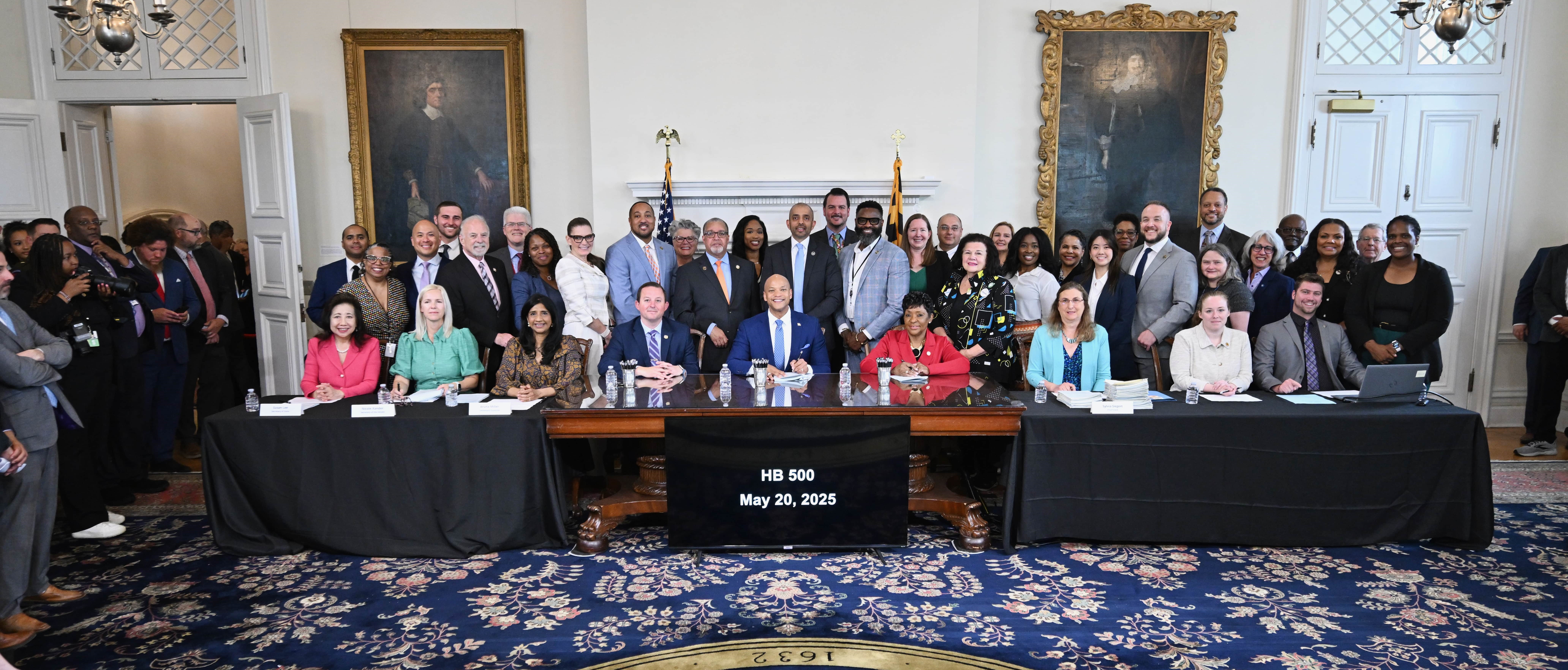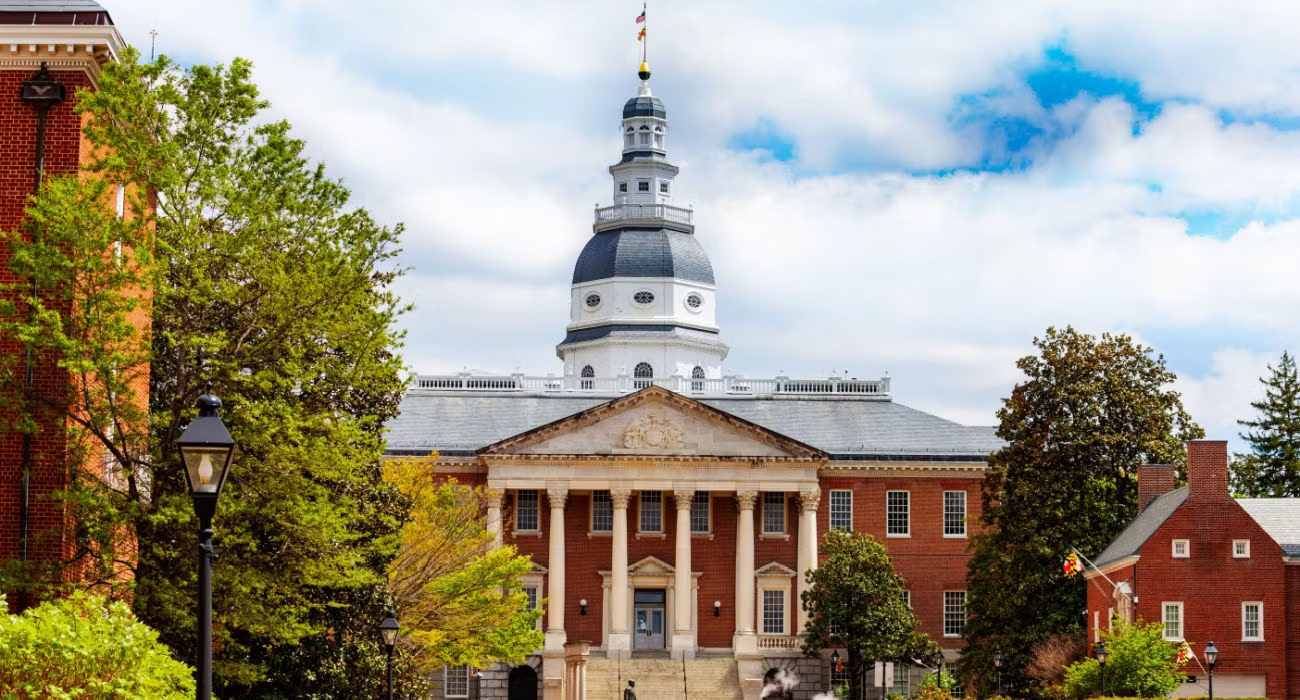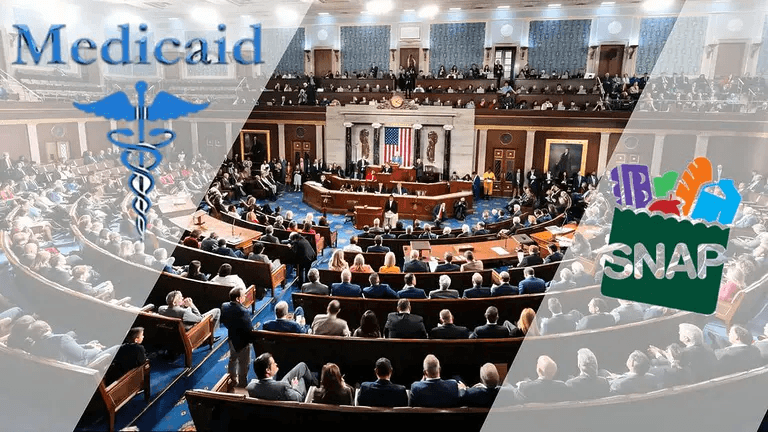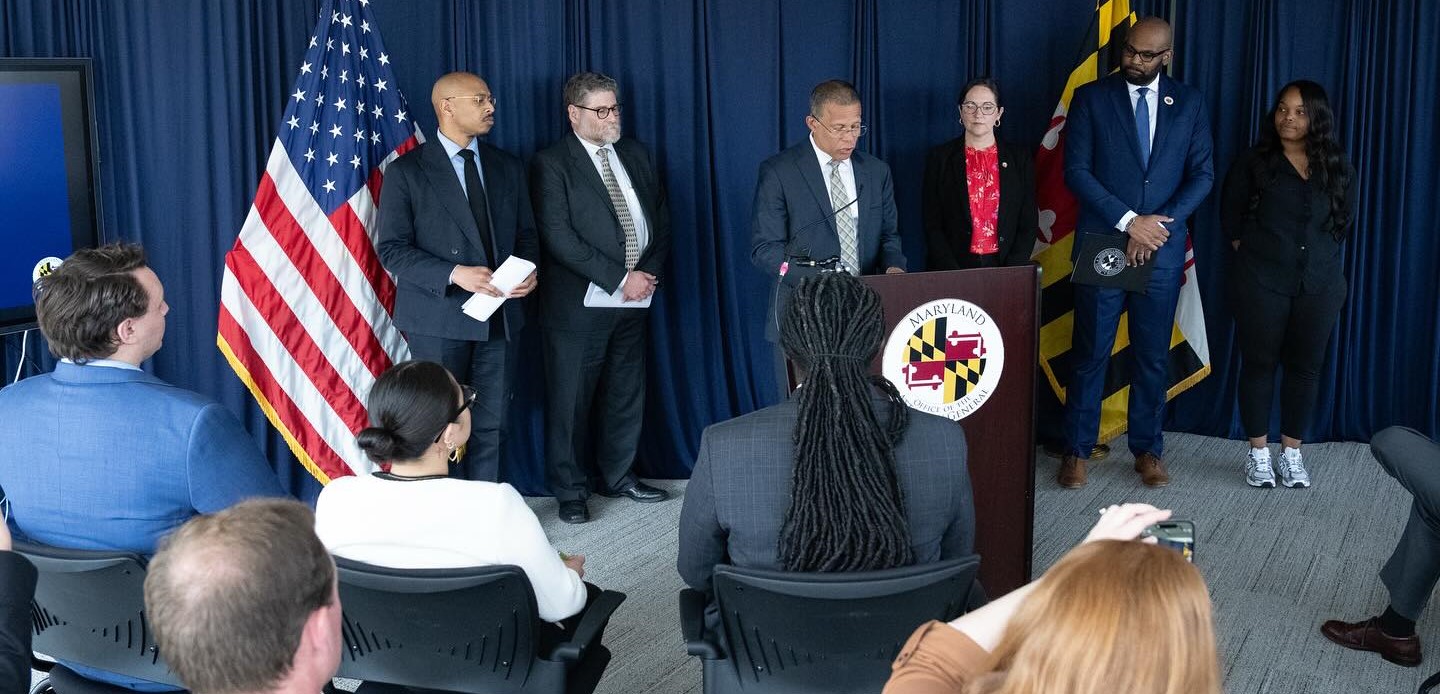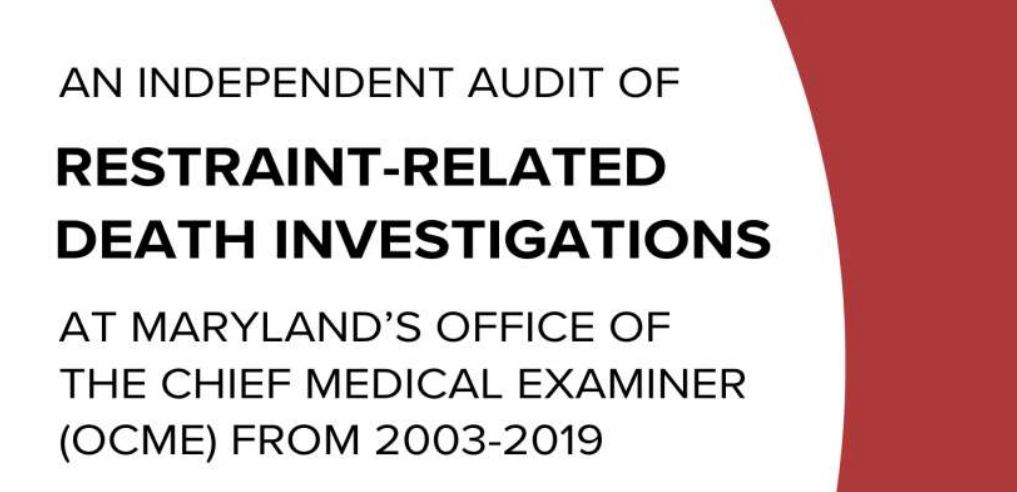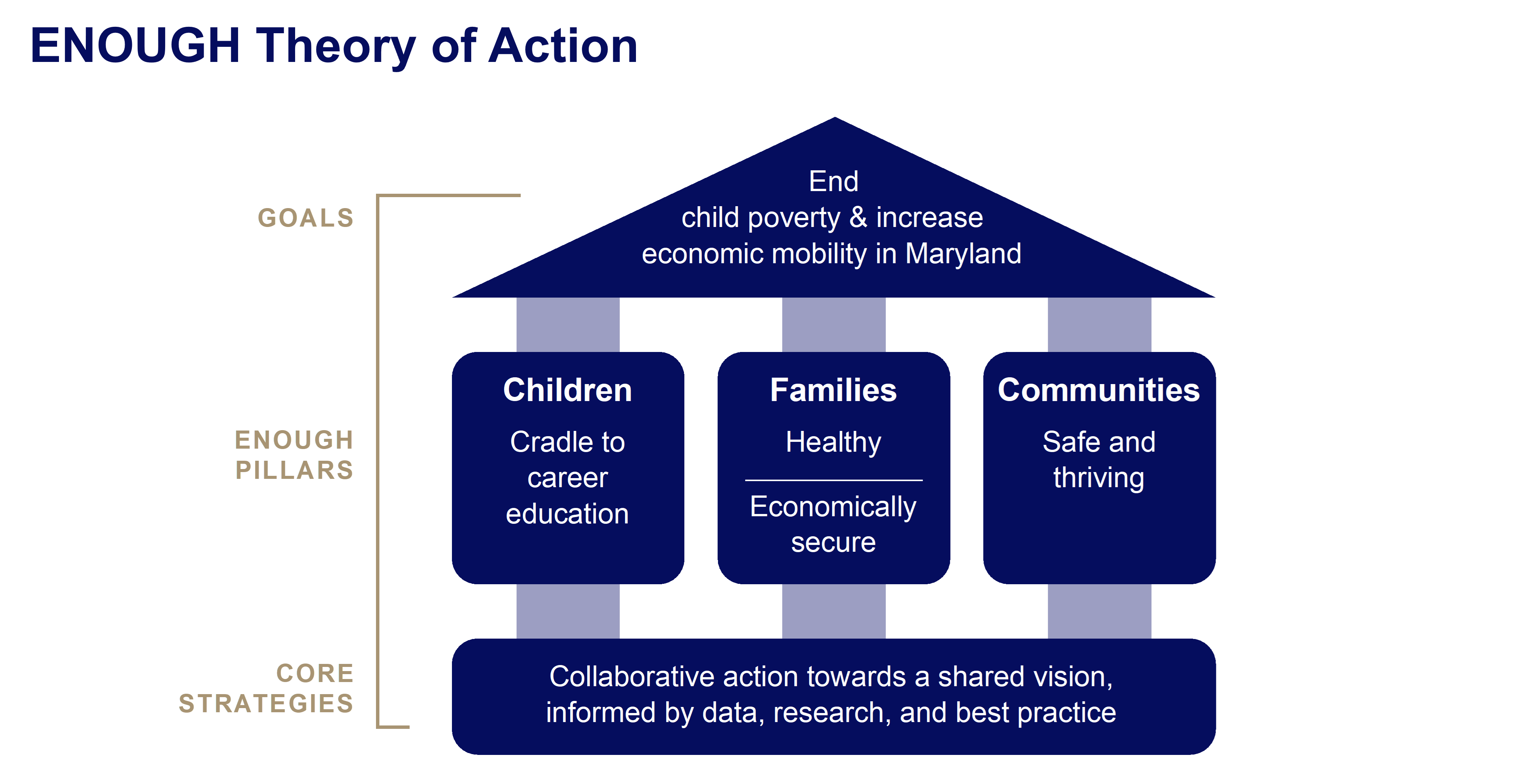Last Tuesday, we held the final bill signing ceremony from the 2025 Legislative Session. We entered the 2025 Session with two primary goals and accomplished both of them. First, we tackled a multi-billion-dollar budget deficit amidst federal chaos and second, we advanced policy to reduce Marylanders’ energy bills in the short-, medium-, and long-term.
Several of the bills aimed at those objectives were signed last week, in addition to legislation to protect State employees, streamline antiquated procurement processes, and lower the cost of prescription drugs for Marylanders. Some highlights include:
These bills reflect the General Assembly’s commitment to effective governance with a focus on responsive and forward-thinking centered on Marylanders’ needs. As the State transitions into implementation, our focus remains on delivering these policies with the same level of urgency and care that brought them into law.
|
Fitch and Moody's Assess Maryland's Bond Rating
|
Despite economic headwinds and a downgrade from Moody’s, Fitch Ratings reaffirmed Maryland’s AAA bond rating two weeks ago, as did Standard & Poor’s (S&P) today. These two AAA ratings signal continued confidence in the State’s financial strength and long-term economic outlook. Fitch praised Maryland’s careful management of liabilities, strong revenue growth, and robust economic base anchored by a deep federal presence.
The ratings by Fitch and S&P reinforce that the General Assembly and Administration made difficult, but the right choices in the 2025 Legislative Session when we balanced the State’s budget despite a multi-billion-dollar deficit. The combination of cuts and revenues ensured Maryland’s bond sales in June will be based on our longstanding AAA rating as the bond market is based on the top two out of three ratings when there is a discrepancy.
Moody’s, by contrast, downgraded Maryland’s rating for the first time since 1973, pointing to heightened vulnerability caused by federal instability. The downgrade follows similar action taken against the federal government by multiple rating agencies, citing the fiscal uncertainty and institutional erosion driven by President Trump’s budget cuts and attacks on federal agencies.
That instability has ripple effects for states like Maryland, where federal jobs and contracts play a major role in the economy. While Washington remains unpredictable, Maryland is holding the line — proving that disciplined leadership and sound budgeting.
|
Surprising Vetoes from the 2025 Legislative Session
|
Governor Moore recently vetoed several pieces of legislation that passed with strong support, including bills focused on effective energy grid planning, determining costs the State will bear due to climate change, and the creation of a Maryland Reparations Commission. The RENEW Act (Senate Bill 149), in particular, aimed to ensure the State followed proper legal and procedural steps before potentially advancing broader climate accountability measures, especially given recent legal challenges after model legislation was passed in Vermont and New York.
Among the vetoed bills was legislation to form a Maryland Reparations Commission (Senate Bill 587) — an effort backed by the Legislative Black Caucus to build on decades of scholarship and begin a formal, statewide dialogue on how to address historical injustice. Commissions like these often serve not only as vehicles for policy development, but as critical spaces for consensus-building, public engagement, and recognition of the important work already completed.
Legislative leadership in both chambers are closely evaluating next steps ahead of the next convening of the Maryland General Assembly when veto overrides would be taken up.
|
Potential Federal Cuts Threaten Medicaid and SNAP
|
Congressional Republicans are proposing sweeping federal budget changes that would shift major costs for health insurance through Medicaid and food assistance through SNAP onto states, putting Maryland’s most vulnerable residents at risk. The Medicaid plan would impose new work requirements and force enrollees to re-verify eligibility every six months. Historically, these administrative hurdles make it so difficult for individuals to access benefits that many people lose Medicaid coverage despite eligibility. The proposed federal reductions to SNAP would require states to cover up to 25% of benefit costs and 75% of administrative expenses — costs Maryland has never been responsible for before. Both proposals would reduce access by adding red tape and limiting flexibility for states to meet local needs.
Nearly one in four Marylanders relies on Medicaid, and over 600,000 depend on SNAP to afford groceries. These federal cuts would strain State resources, increase emergency room crowding, place an immeasurable strain on rural hospitals, and put health care and food access out of reach for thousands. As the Maryland General Assembly works to protect those investments, we remain committed to fighting for the dignity and wellbeing of every Maryland family.
|
AG Brown Secures Housing Discrimination Settlements
|
Maryland Attorney General Brown announced a series of legal settlements with landlords who violated fair housing laws by discriminating against renters with housing vouchers and individuals with past felony convictions. These investigations revealed practices that shut out vulnerable Marylanders from safe, stable housing, including one case where tenants with vouchers were charged higher rent than others in the same building. Over 50,000 Marylanders use rent vouchers, and these settlements send a clear message: discrimination against low-income individuals and families has no place in our housing market.
The agreements include financial restitution and penalties against Maryland Management, Habitat America, and the Commons of Avalon in Frederick County. Landlords were found to reject emergency vouchers, apply blanket bans on applicants with felony convictions, and charge unlawful surcharges to voucher holders. Each settlement requires the landlords to revise their policies, reimburse impacted tenants, and provide staff training on fair housing law. Brown also joined a Maryland Supreme Court case challenging minimum income requirements that effectively disqualify voucher recipients.
|
Audit Uncovers Inaccurate Police Custody Death Findings
|
An independent audit has revealed that at least 36 deaths in police custody across Maryland were wrongly classified by the Office of the Chief Medical Examiner. Many of these individuals lost their lives after being restrained or subjected to force, yet their deaths were labeled as accidents, natural causes, or undetermined. The audit pointed to systemic racial and pro-police bias, including repeated use of the discredited term “excited delirium,” which helped avoid ruling these deaths as homicides. For too many families, this failure denied truth and justice.
Under the framework established by the Maryland Police Accountability Act of 2021, Chapter 132 of the Laws of 2021, and subsequent legislation passed in 2023 the Attorney General now holds exclusive authority to investigate deaths involving law enforcement. That law repealed the Law Enforcement Officers’ Bill of Rights, enhanced training and oversight, raised civil liability limits, and created a statewide standard for transparency and accountability. The Attorney General’s office is currently reviewing each of the flagged cases. Our commitment to justice requires more than reforms on paper, and instead a full and honest reckoning with the past.
|
The ENOUGH initiative is hosting two focus groups today to explore ways to end childhood poverty in the Brooklyn and Curtis Bay area. The first session was from 11 a.m. to 12 p.m. and the second is from 5:30 to 6:30 p.m. The focus group will be held at the City of Refuge Baltimore, 3501 7th Street. Light refreshments will be served and children of any age are welcome.
A tornado with wind gusts of 110 mph touched down in the 46th Legislative District and other parts of Maryland on May 16. The storm uprooted trees at Canton Waterfront Park, toppled tractor-trailers in Dundalk, downed power lines, and ripped off part of the roof of the Merritt Clubs Canton. The Maryland Insurance Association is encouraging those affected by the storm to visit its post-disaster page to learn about resources and tips to help in assessing damage, filing claims, and to aid in clean up and recovery.
The Maryland Insurance Administration is invoking emergency powers to aid residents in western Maryland affected by extreme flooding in the region earlier this month. Insurers were ordered to suspend restrictions on prescription medication refills and the replacement of medical equipment, glasses, and dentures for residents in Garrett and Allegany Counties. In addition, insurers must suspend any cancellations of auto, home, commercial, life, or health insurance for the two counties. The MIA is urging those impacted by severe weather to visit its virtual disaster center for assistance with insurance-related questions.
Maryland recorded 746 fewer overdose deaths in 2024 than in 2023, an almost 30% decrease according to preliminary data released last week by the Centers for Disease Control and Prevention. The decline continues a promising trend that indicates that overdose prevention efforts are proving effective. Maryland slightly outpaced the national decline last year, when overdose deaths fell an estimated 25.6% from 2023.
Maryland’s Prescription Drug Affordability Board is working to find ways to make Type 2 diabetes medications more affordable for State employees. The Board was founded in 2019 to help bring prescription costs down for State employees. The Board is assessing several “dossiers” that analyze the cost burden of six popular prescription drugs, including Farxiga, Jardiance, and Ozempic. According to the American Diabetes Association, as of 2022 over 10% of Marylanders over 18 are living with diabetes.
Maryland’s newly created Department of Social and Economic Mobility will consolidate and strengthen the State’s equity and small business programs across State government. House Speaker Jones proposed the new cabinet agency to ensure the State upholds its commitment to ensuring that economic opportunity is available to every Marylander, especially given federal attempts to ban diversity, equity, and inclusion programs across the country.
The Maryland Transportation Authority is partnering with the Maryland Higher Education Commission to offer a new internship program this summer that gives local college students a role in rebuilding the Francis Scott Key Bridge. The first group of 10 interns from Johns Hopkins, Morgan State and the University of Maryland will serve as temporary employees for the Maryland Transit Administration. They will help the full-time team review designs for safety, test soil for base-building stability, and more.
Long lines and heavy traffic spurred the Maryland Park Service to roll out a new policy requiring reservations for both Greenbrier and Sandy Point State Parks from Memorial Day to Labor Day. The requirement will expand later this summer to Point Lookout, Newtowne Neck, and North Point State Parks. Officials hope the effort eases stress for Park staff members and slows the impact on the State’s delicate natural lands. Visitors can register on the Park Service website up to seven days in advance.
|
|
.jpg)
